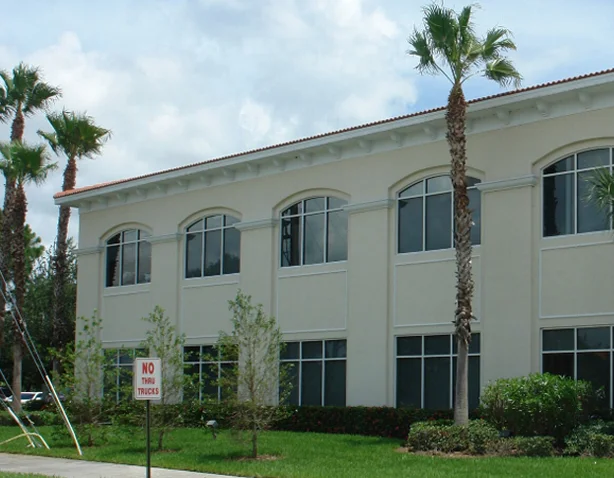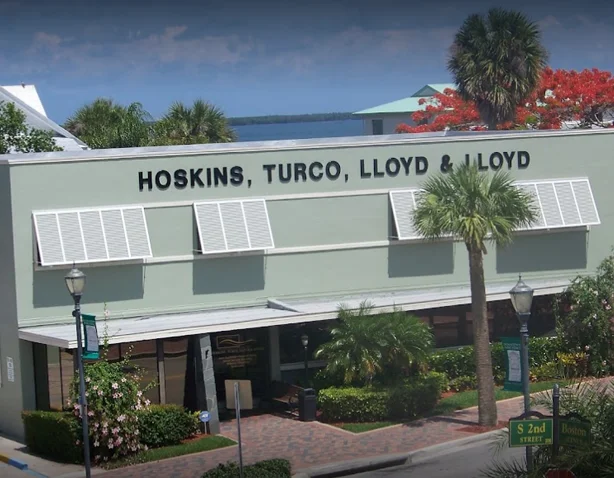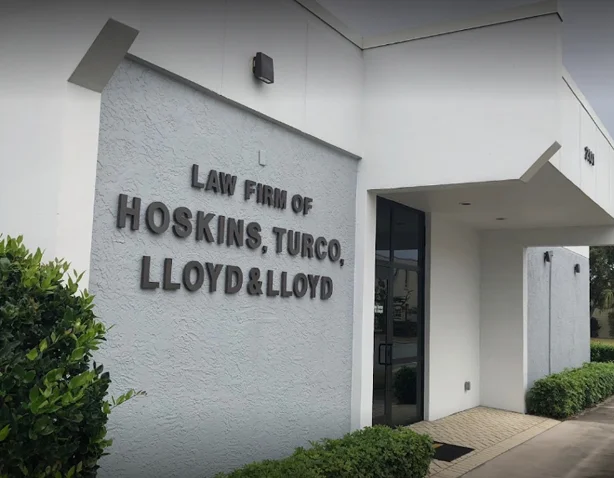Port St. Lucie Office 1555 NW St. Lucie West Blvd.
Suite 203, Port St. Lucie, Fl. 34986
Phone: (772) 344-7770
Fax: (772) 344-3838
No. The following list represents those types of debt which generally cannot be discharged:
Debts for taxes owed to local, state or federal agencies
Debts for money, property, services, or an extension, renewal, or refinancing of credit, which was obtained fraudulently
Debts that weren’t in the initial list of debts or that the debtor waived being canceled
Debts owed to a spouse, former spouse, or child, for alimony, maintenance, or support of a spouse or child, with a separation agreement, divorce decree or other order of a court of record
Debts owed for injury to another person or property owned by another (as in a court judgment)
Debts for government-sponsored educational loans, unless it can be shown that repayment will cause an undue hardship
Debts for death or personal injury caused by the debtor’s drunk driving or from driving while under the influence of drugs or other substances (as in a court judgment)
Debts incurred after a bankruptcy was filed
Any type of legal judgment.
If you have been struggling to repay your debt, you may be dealing with harassing phone calls, emails, and letters from credit collection agencies. You may be concerned that debt collectors will try to garnish…
Read MoreWhen you’re considering filing bankruptcy, it’s natural to have a lot of questions about requirements and restrictions. One of the most common questions people have is about how their employment status may…
Read MoreIf I file for bankruptcy protection, do I have to attend bankruptcy court?” This is a frequently asked question by many persons facing debt problems. This is a legitimate question but before answering it…
Read MoreNo. If you’re a cosigner with your ex-spouse on a debt acquired while married, the creditor can require the entire payment of that debt from you even though the divorce decree assigns the full debt to your ex-spouse. Your divorce decree may address any recourse you may have against your ex-spouse should he default on the loan obligations.
No. However, some situations may not warrant filing for bankruptcy. If your financial situation is temporary, you may consider making arrangements with individual creditors for a change in payment amounts or a reduction in the total amount due. If you have little property or money, filing bankruptcy may not be necessary, as the creditor may not be able to collect the debt.
When you are deep in debt, it is natural to want to take charge of your situation and start working to get your financial life under control. Unfortunately, many companies are banking on you feeling this way…
Read MoreIf you have fallen on hard times and are having a difficult time paying your bills, you may be receiving frequent contact attempts from debt collection agencies, which can quickly become frustrating…
Read MoreThe questions that are often asked by consumers who are considering filing bankruptcy are; How do I know if I need to file bankruptcy? What happens if I do file bankruptcy? Will my credit still be in good…
Read MoreIf you’re thinking about declaring bankruptcy to take control of your finances, you may be wondering how long your case may take to resolve. It might be surprising to hear that filing for bankruptcy is a…
Read MoreFiling bankruptcy can adversely affect your ability to obtain future credit, rent housing and even negatively impact a job application. Any decision to file must be carefully considered.
Chapter 7 – can be filed every 8 years from a previous Chapter 7 filing, or 6 years from a prior Chapter 13 filing.
Chapter 13 – can be filed 4 years from a prior Chapter 7 filing, or 2 years from a prior Chapter 13 filing.
You may have found yourself in the same situation millions of others have. Your income simply does not cover your debts, and you are being hounded by collection agencies. If you have discovered that you can…
Read MoreIf you have been with your current bank or credit union for a while and have developed a good working relationship with them, you might be concerned that filing for bankruptcy may affect that relationship…
Read MoreWhen you’re unable to pay back people or institutions you owe money to, bankruptcy can help alleviate some of the debt you can’t afford to take on yourself. Unfortunately, this means that you’ll need to…
Read MoreNo. As part of the bankruptcy process, filers must declare all debts. All debts are required to be included in the submitted paperwork, and all debts are considered as part of the overall bankruptcy agreement…
Read MoreWhen your financial future is on the line, you should consider every path you have available to you when figuring out what step to take next with your debt. Sometimes, bankruptcy makes the most sense and…
Read MoreExemptions allow an individual to “exempt”, or keep, certain kinds of property. State law defines what assets are considered “exempt,” but typically include:
Jewelry
Vehicles up to a certain amount
Equity in a home up to a certain amount
“Tools of the trade” or tools and equipment necessary to allow the individual to continue working
All bankruptcy cases in the United States are handled at the federal level. This is intended to provide a consistent legal experience across the board, no matter where you are in the country…
Read MoreIf you’ve been having a difficult time meeting your financial obligations, you may be considering filing for bankruptcy. When you file for bankruptcy, the ultimate goal is to get your applicable unsecured…
Read MoreSometimes, despite doing everything you can, falling behind on bills is unavoidable. Even the most responsible consumers may find themselves in a position where they can’t repay the money they owe…
Read MoreSecured debt is a claim that’s secured by some type of property, either by an agreement or involuntarily with a court judgment or taxes. Creditors can generally claim the property and use it to pay off the debt in the event of a Bankruptcy. For example, the mortgage on your house is a secured debt on your property. Unsecured debt is not tied to any type of property, and the creditor can’t claim it if you file for bankruptcy.
Consumers typically file Chapter 13 bankruptcy, where repayment is made to creditors or Chapter 7 where the debts are dismissed. Each chapter of bankruptcy spells out:
What bills can be eliminated
How long payments can be stretched out
What possessions you can keep
Additional information
The type depends on your circumstances and if you have assets available to repay all or part of your debts. Bankruptcy laws can be tricky and involved, so determining if, when and which type of bankruptcy you need should be made with careful thought or the input of a bankruptcy lawyer.
There are a variety of different types of bankruptcy. For the purpose of simplicity, we are going to use the term bankruptcy to refer to any situation in which a person is unable to pay their debt obligations in…
Read MoreWhen you fall behind on bills and start receiving harassing phone calls from lenders or collection agencies, it may feel as though you have nowhere to turn. However, that’s not the case…
Read MoreWhen you find yourself underwater financially and feel like there is no way out, we want to assure you that help is indeed available. Bankruptcy is one option that does not deserve the stigma it gets…
Read MoreThere are many factors that impact the ability to keep your home, including:
The state you’re in and the exemptions allowed
The status of your loan (current or in foreclosure)
The type of bankruptcy you’re filing (Chapter 13 provides more protection than Chapter 7 as long as payments are current)
Generally, no. Retirement accounts that are ERISA-qualified aren’t considered the property of an estate and aren’t taken into consideration as assets. Social Security benefits are protected from an assignment, or garnishment for debts in bankruptcy. Once paid, the benefits continue to be protected only as long as they can be identified as Social Security benefits. For example, money in a bank account where the “only” deposits into the account are direct deposits of Social Security benefits are identifiable and generally protected.
Bankruptcy filings are technically a matter of public record. If you’re filing a bankruptcy in the District Court for the Southern District of Florida, it’s good to know that the Daily Business Review publishes all…
Read More
Phone: (772) 344-7770
Fax: (772) 344-3838

Phone: (772) 464-4600
Fax: (772) 465-4747

Phone: (772) 577-7551
Fax: (772) 794-7773

Phone: (863) 357-5800
Fax: (863) 763-2237
As the law firm Florida has trusted for over 40 years to fight on their behalf, we are more than ready to represent you. Put our experience and reputation to work. If you need help with any legal matter, whether it’s a personal injury, workers’ compensation, disability or bankruptcy case, contact us now. The consultation is absolutely free.
Get the answers you need. We’ll review your case today, for free.
"*" indicates required fields